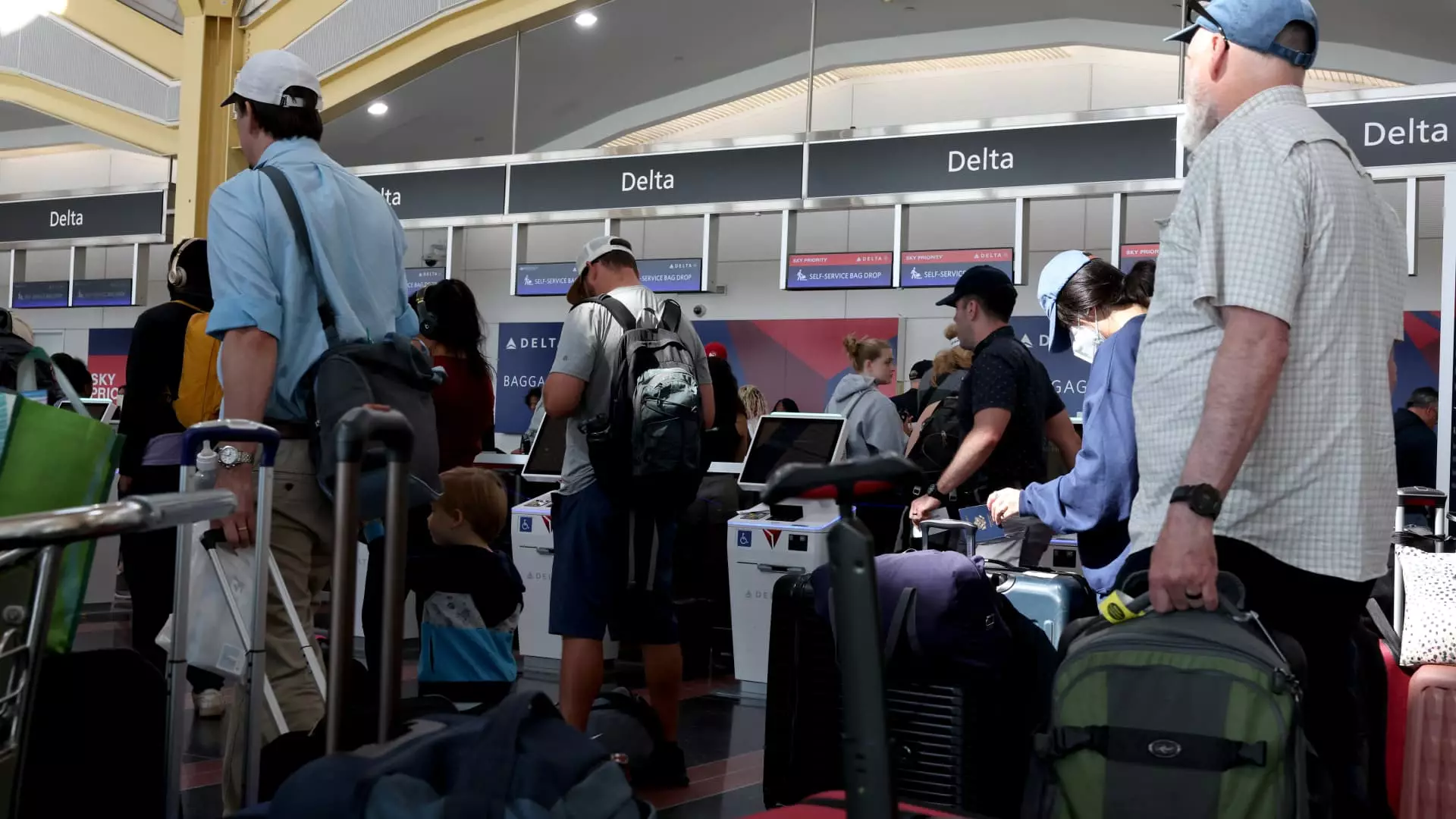As major airlines like United, Delta, and American Airlines grounded flights on a Friday morning, chaos ensued due to a global IT outage affecting their operations. Eric Napoli, the chief legal officer at AirHelp, described the situation as mass chaos unfolding everywhere, highlighting the incredible bottleneck the shutdown had on numerous flights. This incident left travelers facing unexpected delays, prompting concerns and questions about compensation entitlement.
For passengers impacted by flight disruptions, entitlement to compensation such as a refund, hotel accommodation, or meal vouchers largely depends on the specific policies of the airline. According to travel experts, there is a grey area as passengers find themselves at the mercy of the airline’s policy. Determining whether the outage falls within or outside the airline’s control is crucial in deciding the financial compensation customers may receive.
Despite the uncertainties surrounding compensation policies, there is a guarantee that customers have rights when airlines cancel their flights. The U.S. Department of Transportation asserts that customers are owed a refund of the ticket price, including fees, in case of flight cancellations, regardless of the reason. This applies even to non-refundable tickets, ensuring that customers can receive cash back if they decide not to travel and decline alternative flight options.
Customers are entitled to a refund for “significant” schedule changes or delays based on the Department of Transportation guidelines. While the term “significant” is not explicitly defined, factors such as the length of delay and specific circumstances are considered in determining eligibility for refunds. However, following a new rule issued in April by the Biden administration, airlines will be required to promptly and automatically pay refunds to customers for certain itinerary changes starting from October 28.
Despite the upcoming rule changes, customers affected by the recent outage may face challenges in claiming refunds, especially those who purchased tickets through third-party booking sites. Experts suggest that customers might have to navigate through complex processes with intermediaries to seek financial compensation. The delay in implementing the new refund rules creates additional hurdles for passengers dealing with flight disruptions.
Airline Policies and Passenger Rights
In situations where travelers need to reach their destinations despite disruptions, specific airline policies come into play. Airlines are obligated to rebook passengers on the next available flight and address delays or cancellations longer than three hours according to Department of Transportation requirements. While airlines commit to providing accommodations and rebooking options, the extent of compensation may vary between carriers depending on their policies.
Airlines are obligated to follow their promises to customers in controllable flight cancellations or delays caused by internal issues such as maintenance or crew problems. However, compensation for uncontrollable events like weather-related disruptions is generally harder to obtain. Experts remain divided on whether the recent IT outage falls within airlines’ control, shifting the focus to accountability of vendors chosen by airlines for their operations.
Passengers experiencing delays or cancellations are advised to keep receipts for unexpected expenses incurred during the journey for filing claims with airlines or travel insurers. Documentation of costs such as lodging and meals can serve as crucial financial proof when seeking reimbursement for additional costs. By holding onto receipts, passengers maximize their chances of recovering some of the expenses incurred due to flight disruptions.
Navigating the complexities of compensation entitlement during airline IT outages and flight delays requires passengers to be informed about their rights and proactive in documenting expenses. As airlines work to restore operations, passengers must stay vigilant and prepared to engage with airlines and intermediaries to seek appropriate compensation for the inconveniences faced during their travels.


Leave a Reply